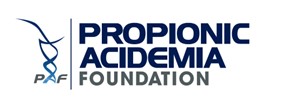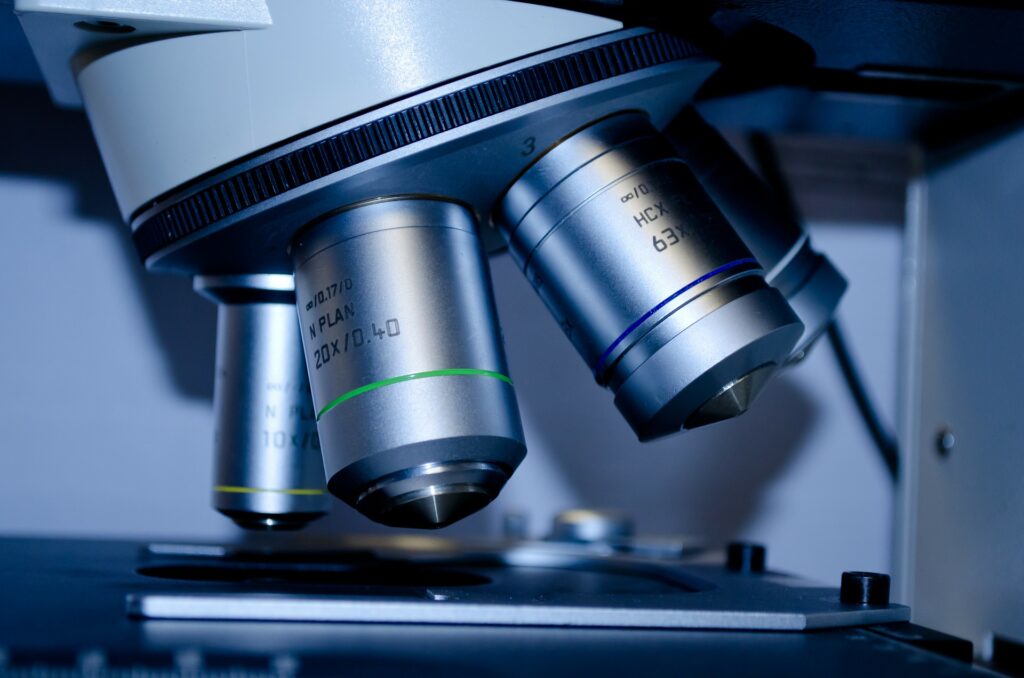Learn about the how Propionic Acidemia is diagnosed, what the symptoms are and treatments. Find out more about newborn screening.
What is Propionic Acidemia (PA)?
Propionic Acidemia (PA) is a rare disorder that is inherited from both parents. Neither parent shows symptoms, but both carry a defective gene responsible for this disorder. It takes two faulty genes to cause PA.
Individuals with PA cannot break down parts of protein and some types of fat due to either a missing or a non-functioning enzyme called PCC. This inability causes a build-up of harmful substances which can cause damage to the person’s heart, liver, brain, and bones. The result can be seizures, delays to normal development like walking and talking, and other health problems. During times of illness the individual with PA may need to be hospitalized to prevent breakdown of proteins within his/her body.
What are the symptoms of Propionic Acidemia?
Symptoms will present themselves within days of birth (acute onset) or later in childhood (late onset) depending on the severity of the disorder. Symptoms may include: refusal to eat, poor sucking ability, vomiting, dehydration, lethargy (excessively tired or sluggish), acidosis (excess acid in the blood), and hyperammonemia (excess ammonia in the blood) If not treated, mental impairment, coma and death can follow.
How is Propionic Acidemia diagnosed?
Most states provide comprehensive newborn screening (CNBS) for Propionic Acidemia. Potential late onset cases can be identified using this type of testing. Such cases are verified through additional blood and urine tests. Diagnosis of acute onset cases is typically made in the intensive care unit when newborns go into a metabolic crisis within the first few days of life.
If the baby isn’t screened at birth, late onset cases may present themselves throughout the first few months of life with failure to thrive, vomiting, trouble feeding, and/or low muscle tone. If the symptoms aren’t addressed, late onset cases are usually diagnosed in the ER after a traumatic metabolic crisis. Early detection and treatment of propionic acidemia can potentially improve the prognosis of the affected individual.
What is comprehensive newborn screening?
Comprehensive newborn screening is a simple blood test where a heel prick is performed on the baby to get a few drops of blood. The test should be done 24-48 hours after birth. The test is used to identify many life-threatening genetic disorders including Propionic Acidemia. Each state determines which disorders are included in their newborn screening panel. If your state does not screen for Propionic Acidemia, you can have your child tested through an independent laboratory.
How do you get PA?
The gene defect for PA is an autosomal recessive genetic trait that is unknowingly passed down from generation to generation. Autosomal means that the condition can affect males and females. Recessive means that the person with the disorder has two copies of the faulty gene (one from the mother and one from the father). This faulty gene only emerges when two carriers have children together and both pass it to their offspring. A carrier has one functioning gene and one faulty gene. For each pregnancy of two such carriers, there is a 25% chance that the child will be born with the disease and a 50% chance the child will be a carrier for the gene defect.
PA occurs in approximately 1 in 50,000 live births in the United States.
What is the treatment?
Every day an individual with propionic acidemia walks a metabolic tightrope of getting enough protein for normal growth and development and getting too much protein causing instability. Dietary restriction of total protein, the four offending amino acids (valine, isoleucine, methionine and threonine), and odd-chained fats is the treatment. This is given through a carefully calculated metabolic formula determined by your doctor and nutritionist. The diet is also supplemented with levocarnitine to help remove toxic metabolites. Although some PA children learn to eat, most require gastronomy tube feedings since they have little to no appetite and food aversions.
Is PA contagious?
No, it is a genetic disorder.
Can an individual outgrow Propionic Acidemia?
No, PA is caused by a genetic defect. This is why it is so important to fund PA research that will develop a true cure for this disorder.
What complicates PA?
Illness (cold, flu, GI bugs, viruses, etc.), stress, dehydration, lack of calories and constipation can cause metabolic instability. During these times, caregivers will want to speak with physicians about further restrictions in protein or a trip to the ER for IV hydration and monitoring. Some children with PA are more prone to elevated ammonia levels, pancreatitis and cardiomyopathy.
What gene and chromosome causes PA?
Propionic acidemia (PA) is caused by defects in either the PCCA (chromosome 13q32) or PCCB (chromosome 3q21-q22) genes.
Is Propionic Acidemia called anything else?
Yes, you may find it under:
Hyperglycinemia with Ketoacidosis and Lactic Acidosis, Propionic Type;
Ketotic Glycinemia; PCC Deficiency; Propionyl CoA Carboxylase Deficiency or Propionic Aciduria
Another great Fact Sheet by STAR-G: PA Fact Sheet





